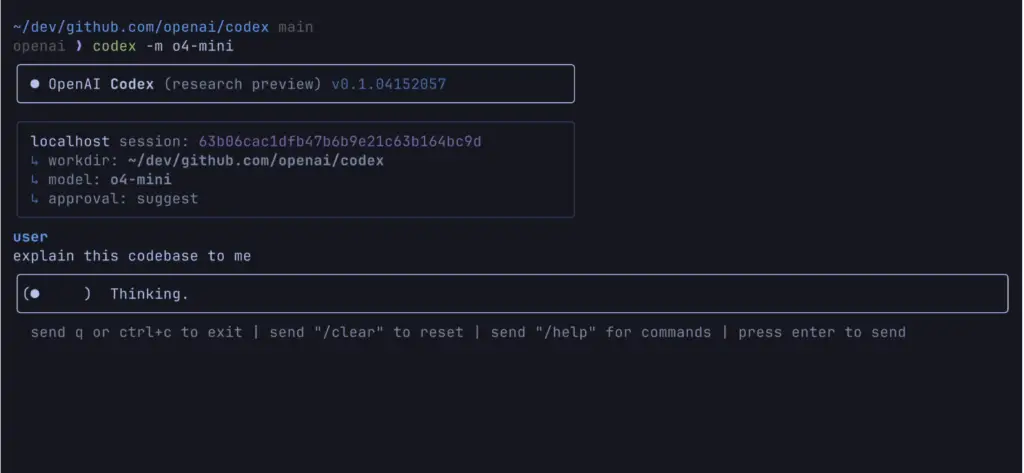
In an effort to further integrate artificial intelligence into the software development process, OpenAI has officially unveiled a lightweight, open-source terminal-based programming assistant called Codex CLI. This tool is designed to run locally within terminal environments, functioning as a programming agent that assists developers through natural language dialogue—enabling rapid code generation, editing, and the execution of various tasks.
OpenAI describes Codex CLI as a software engineering agent, part of a broader suite of tools the organization aims to build. These tools are envisioned to take application descriptions and autonomously generate code, even performing quality checks to ensure robustness and consistency.
In practical use, developers can provide the model with screenshots or low-fidelity sketches, allowing it to infer intended UI designs and automatically generate the corresponding code. From there, users can iteratively refine, test, and debug as needed—streamlining the development workflow from concept to implementation.
Codex CLI is fully open source and free to use, though developers must supply their own OpenAI API key to access the model. At present, support for third-party models is not available. OpenAI recommends its newly released o3 and o4-mini models for programming use cases; however, it’s worth noting that these models come with relatively high usage costs.
Notable Features of Codex CLI:
- Terminal-native design tailored for developers accustomed to command-line workflows, offering ChatGPT-level reasoning combined with real-time code execution, file manipulation, and iterative development—all under version control.
- Zero configuration required: Simply input your OpenAI API key and begin.
- Fully automated approvals with built-in safeguards, including network isolation and directory sandboxing, to ensure secure and reliable operation.
- Multimodal input support, enabling functionality through screenshots or diagrams.
Developers interested in exploring Codex CLI can visit the official project page for more details.
Related Posts:
- OpenAI to Require ID Verification for Advanced AI Models
- Google’s Android Terminal: More Linux Apps, Not a Linux Desktop
- Google Enables Linux Terminal on Android, Running Debian in a Virtual Machine
